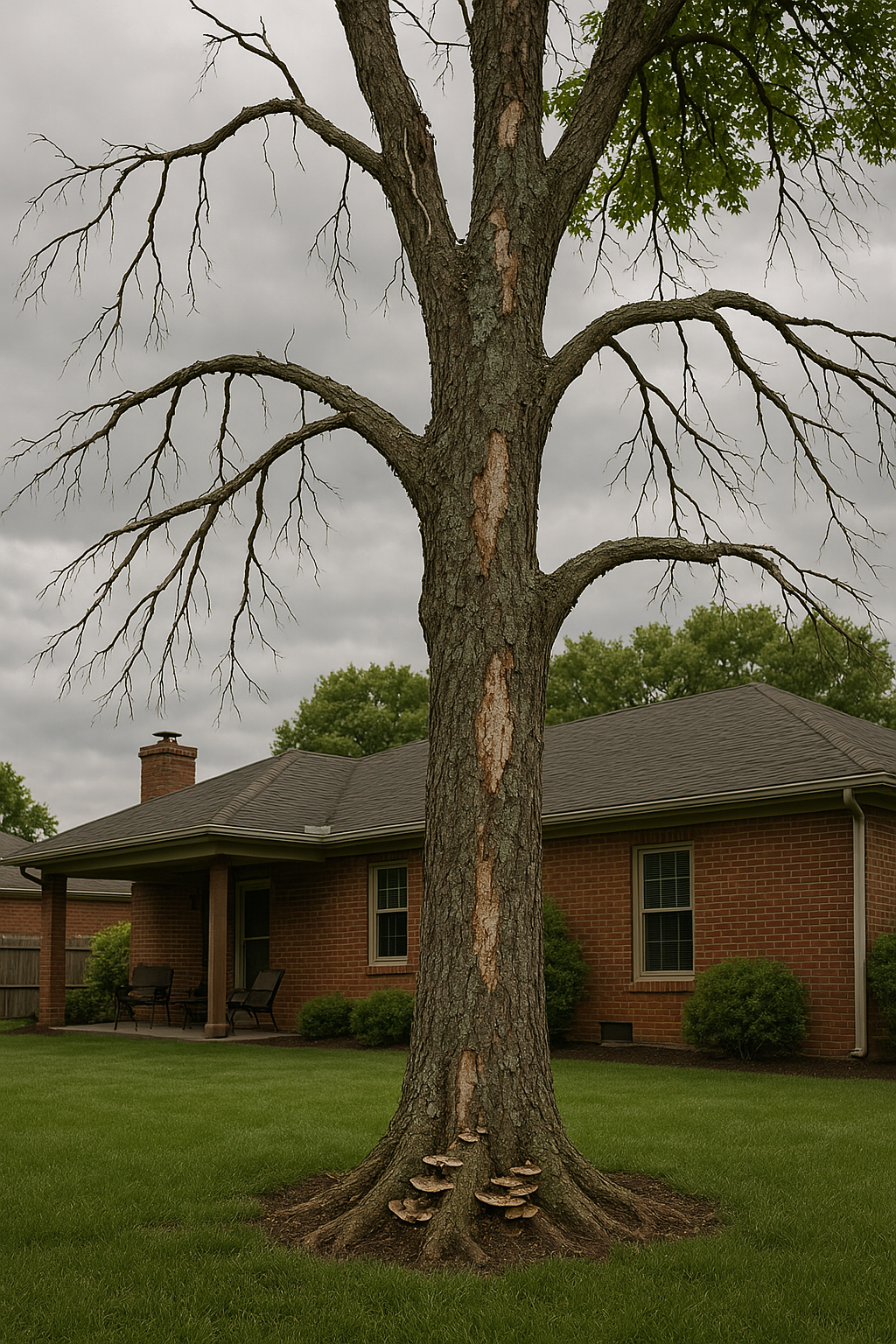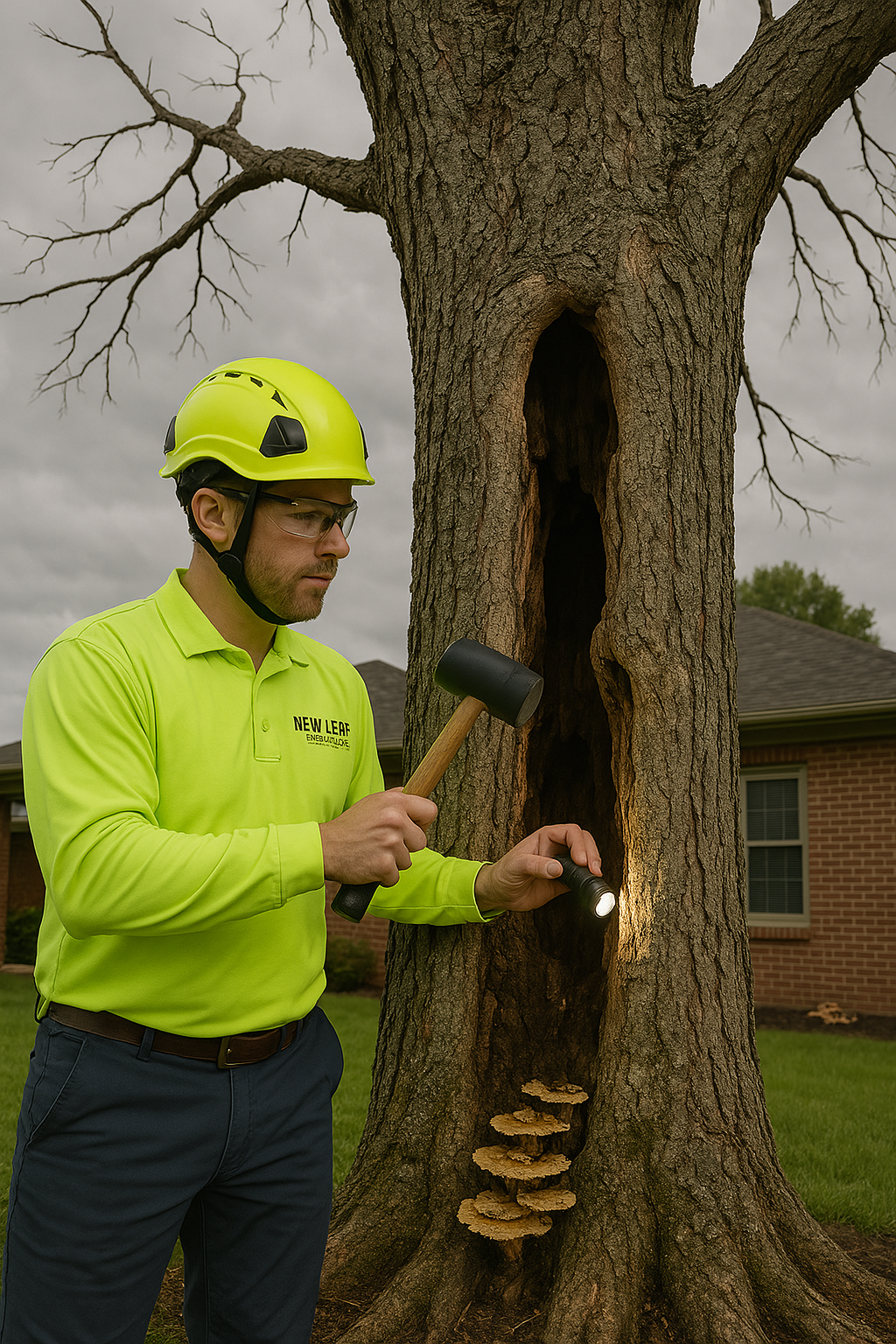You Don’t Need a Storm for a Tree to Fail

It’s easy to assume a tree’s healthy just because it’s still standing. But in Louisville neighborhoods like Hikes Point (40220) and Germantown (40217), we’ve removed dozens of trees that looked “fine” — until they cracked down the middle.
A sick tree often gives warning signs. You just need to know what to look for.
7 Signs Your Tree Might Be in Trouble
- Dead or hanging limbs
Large limbs that aren’t budding in spring or have no leaves in summer could be dying.
- Cracks in the trunk or major limbs
Deep splits signal structural weakness and may point to hidden decay inside.
- Mushrooms or fungus at the base
Fungal growth often means root rot, especially in soggy spots like Clifton (40206) or Butchertown (40204).
- Leaning suddenly
A slight tilt may be fine, but if it recently started leaning — especially after heavy rain — call us.
- Bark falling off
Patchy or peeling bark, especially with no new bark forming, is a red flag.
- Sparse leaf growth or canopy dieback
If one side is bare while the other thrives, there may be internal damage.
- Sawdust-like material at the base
This could mean insect activity — and that means trouble.
What Makes a Tree “Hazardous”?

When we assess trees in areas like Anchorage (40223) or Prospect (40059), we look for three things:
- The likelihood of failure (Is it weak?)
- The target (Is it near a house, car, or sidewalk?)
- The consequences (What happens if it falls?)
Even a medium-sized tree with a large lean toward your roof can be a ticking time bomb.
What to Do If You Suspect a Tree is Sick
Don’t ignore it. A certified arborist can evaluate the situation and recommend:
- Pruning or weight reduction
- Cabling and bracing
- Root aeration or fungal treatment
- Full removal (only if truly necessary)
Book a tree health assessment for a full inspection.
What Causes Tree Health Issues in Louisville?
- Clay soil that traps water and suffocates roots
- Storm damage from ice, wind, or lightning
- Improper pruning (especially topping)
- Compacted soil from foot traffic or construction
- Invasive pests like emerald ash borer or borers in poplars and maples
Each tree species reacts differently — and we’ve seen every scenario.
Not Sure? We’ll Check for You
If you live in Old Louisville (40208), Middletown (40245), or St. Matthews (40207) and you’ve got even a small concern, we’ll come take a look.
Our assessments are fast, honest, and focused on saving trees whenever possible.
- Schedule a tree health check
- Learn about our pruning and treatment options
- Get in touch with our arborists
Because the best emergency is the one you prevent.
